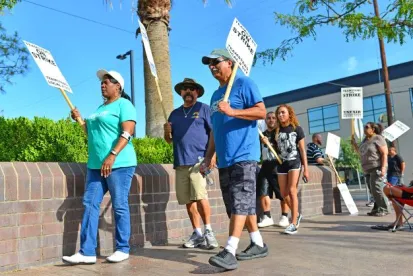On April 24, 2023, just ten days after Rutgers University faculty ended their week-long strike, Governor Murphy signed bill A4772/S3215 providing workers with increased access to unemployment insurance benefits during labor disputes. The provisions of the bill include:
- Worker access to unemployment benefits where they have been locked out by their employer, even where a strike did not precede the lockout;
- A decrease from 30 to 14 days following the onset of a labor dispute for qualification for unemployment benefits;[1]
- Allowing the immediate payment of benefits, with no waiting period, where an employer replaces workers with permanent or temporary employees; and
- Providing unemployment benefits even where an issue in the labor dispute is the failure of the employer to comply with an agreement between the employer and the workers bargaining representative, or a failure or refusal of the employer to comply with State or federal law regarding hours, wages, or other conditions of work.
The bill takes effect immediately and provides retroactive benefits to any claims filed on or after January 1, 2022.
New Jersey is only one of a few states that provide unemployment benefits to employees that go on strike.
In neighboring New York, while workers have historically been entitled to unemployment benefits while on strike, they previously had to wait a total of eight weeks before collecting benefits. As of February 6, 2020, Governor Cuomo passed legislation decreasing this waiting period to only 14 days. Employees subject to a lockout or who have been permanently replaced are entitled to unemployment benefits even earlier. Other States are considering legislation similar to the New Jersey legislation.
[1] The law provides that the labor dispute need not be authorized or sanctioned by the workers collective bargaining representative in order for the worker to qualify for access to unemployment insurance benefits.




 />i
/>i

